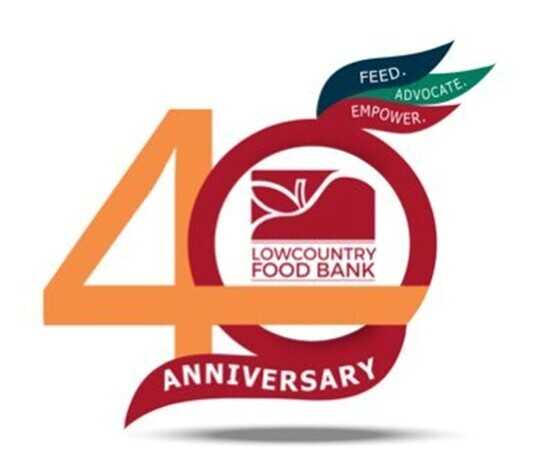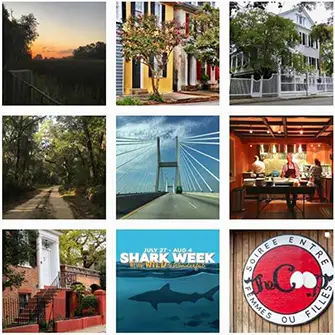
Lowcountry Food Bank & Supermarkets Make For Strong Partners
Together the Two Entities Help Combat Food Insecurity Throughout Coastal Lowcountry Communities
Jeff Walker, Goodwill Writer
While the overall Lowcountry Food Bank (LCFB) mission is to combat food insecurity, especially for children and the elderly, they cannot fulfill the mission without one essential element, and that is without an ample supply of food. And although LCFB use funds supported through donations to fill in provisional gaps, a good chunk of food comes from supermarkets and farmers, with nearly 40 percent of the food distributed on a daily basis coming from grocery stores. 
Most people who are aware of LCFB have a general notion of what the organization provides, however they have no idea how essential the alliance with the grocery stores are. Some 200 stores across 10 counties from North Myrtle Beach to Hilton Head donate produce (fruits & vegetables), baked goods, meats, and dairy products directly to three LCFB distribution centers or have 60 partner agencies pick up provisions on a regular basis.
Food Resource Manager Mark McGilvery who's been with LCFB five years oversees the entire operation from the organization's main location on Azalea Drive in North Charleston. While it would take many paragraphs to describe all Mark does, in layman's terms his job is to be a liaison between LCFB and the supermarkets.
Mark networks with store managers, assistants, and employees to not only maintain rapport, but more importantly make certain donated foods are picked up in a timely fashion. While Mark may visit them once a month or once a quarter, he's available to the partner stores everyday via phone or email, addressing any concerns that arise. His role involves lots of travel, shaking hands, offering up gratitude, meticulous paperwork, and managing his team.
It goes without saying that most of the donated foods fall into two categories. First, particular food items reaching their 'best if used by date', which includes many of the baked goods, as well as meats and dairy. Secondly, items may be donated simply due to appearance. Almost all grocery stores maintain a standard based on looks.
For example, a majority of shoppers prefer not to buy produce if say an apple or tomato is slightly bruised. The fruit or vegetable may be ideal for consumption, but in many cases the stores choose to set imperfect produce aside, and thankfully LCFB or a partner agency will discover said items usually in the stores donation bin no later than the next day.
Let me break it down. Depending on how much food is donated, and Mark and his team have a general idea, LCFB depend on their partner agencies or their larger trucks to pick up sometimes everyday, or in many cases as much as three times a week.
If they are picking up donations from a partner as big as Sam's Club, LCFB may dispatch a truck to pick up the items, return them to one of the three main distribution centers where partner agencies may come and claim some of the items, with LCFB taking the remainder directly to partner locations.
Without question it's a well oiled machine, because time is of the essence. With most of the foods donated having a short expiration date, it's critical the partner agencies distribute to those in need in a timely manner, or for those who provide meals they too have to use the foods before they go bad.
Focusing on two Charleston county grocery stores, the Food Lion on Remount Road is a strong and longtime partner. Pert the store manager and his associates are delighted to be a part of LCFB's mission. The store donates food three times a week, and our partner agency the Dream Center, a faith-based ministry picks up the donations early in the mornings and distributes them the same day at their facility.
Publix Super Market at Ashley Landing Mall on Sam Rittenberg is another super partner, allowing the Humanities Foundation (an organization dedicated to providing quality affordable & workforce housing) to pick up several times a week and further allocate to families in their respective communities. These are just two examples of stores going above and beyond, partnering with LCFB to provide a win win situation for all involved.
Canned and dry foods have a longer shelf life, however perishables do not. Rather than see perishables go to waste partner grocery stores are more than happy to donate the food, knowing their small act of generosity impacts the community in a big way. While many of the supermarkets support similar causes especially during the holiday season, they continue to partner with Lowcountry Food Bank year round in our mission to combat food insecurity.
Again this Food Resource Management program under the watchful of of Mark McGilvery is well orchestrated, and like many of the programs under the LCFB umbrella it often goes un-noticed. However, without Mark, his team, drivers, facility volunteers, each and every supermarket team member, the operation would not happen. Thanks to all who participate in this valued program.



